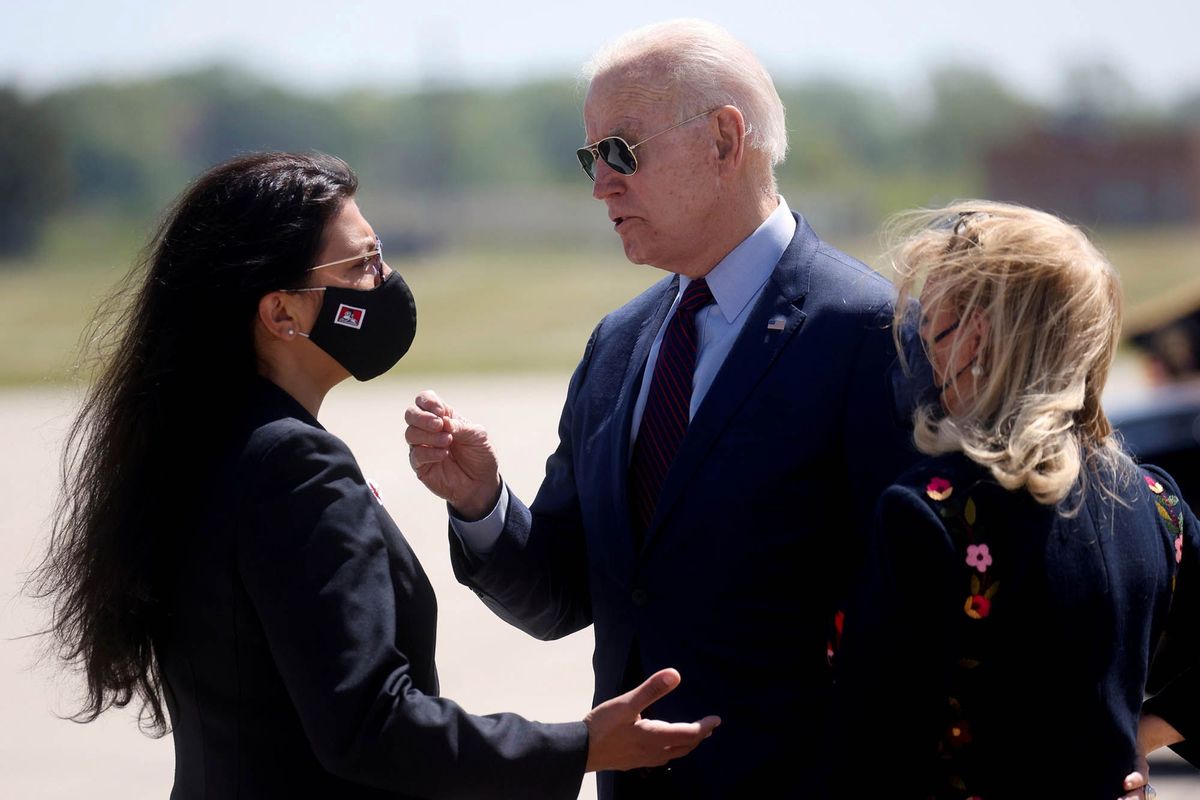The arms deal between the US and Israel, explained

A few minutes every morning is all you need.
Stay up to date on the world's Headlines and Human Stories. It's fun, it's factual, it's fluff-free.
This last US-Israel arms deal was agreed to before the most recent violence began.
- As violence waged between Palestine and Israel in recent weeks, the Biden administration faced criticism for an arms deal it made with Israel worth US$735 million.
- Much of that criticism came from the progressive wing of the Democratic Party, with members of the so-called “Squad” voicing support for Palestine in the ongoing conflict.
- Independent Senator Bernie Sanders, who is looking to block the deal, said, “At a moment when US-made bombs are devastating Gaza and killing women and children, we cannot simply let another huge arms sale go through without even a congressional debate.”
US support for Israel
- President Joe Biden supported a cease-fire between the two enemies, but the United States’ long relationship with Israel left little doubt as to whose side the US was on.
- Part of that relationship has to do with the US’ desire to have a strong ally in the Middle East.
- Many countries in the region have a complicated relationship with Western nations like the US and the United Kingdom or no relationship at all.
- But the US has long been in the business of selling military weapons and equipment to nations in the region and Israel is one of the US’ best customers.
What is the US/Israel arms deal?
- This last US-Israel arms deal was agreed to before the most recent violence began.
- But critics of the deal have said that this is just a continuation of the US’ long history of helping Israel build up its military, both with weapons and with financial support.
- This most recent deal includes military weapons and something called “Joint Direct Attack Munitions” (JDAMs), which are not weapons, but are added to existing bombs so they can be guided like a missile.
- That US$735 million deal was separate from the US$3.8 billion the US is giving Israel in its annual aid package.
Will Bernie and the Squad block the deal?
- Washington insiders think it’s highly unlikely.
- For one thing, support for Israel is one of the few topics that unites most Democrats and Republicans, even though some Democrats are now challenging that.
- US Representative Rashida Tlaib, who is Palestinian American, has been joined by other members of the Squad – Democratic Representatives Cori Bush, Ilhan Omar, Alexandria Ocasio-Cortez and Ayanna Pressley – in arguing that US support for Israel has come at the cost of Palestinian lives.
- But even with this notable change in rhetoric among some politicians in Washington, these opinions remain a minority view on Capitol Hill.
- Neither the Squad nor Sanders’ effort to block the sale of weapons to Israel is likely to have enough support to work.
Why does the US sell arms to Israel?
- That’s a big question with several different answers, but for the US government, not only do military deals with Israel and countries like Saudi Arabia bring profits into the US, they also allow the US to influence foreign policy in the region.
- After all, if Israel wants those weapons – and it really does – then the US can put pressure on the country to support certain political goals.
- From Israel’s perspective, as the only non-Muslim majority nation in the region, these weapons are necessary for its protection.
- But the US has long sold weapons to other countries in the Middle East too, including ones that don’t have a good relationship with Israel.
- In fact, the US is the largest seller of military arms to the region and to the world as a whole.
Have a tip or story? Get in touch with our reporters at tips@themilsource.com




Comments ()